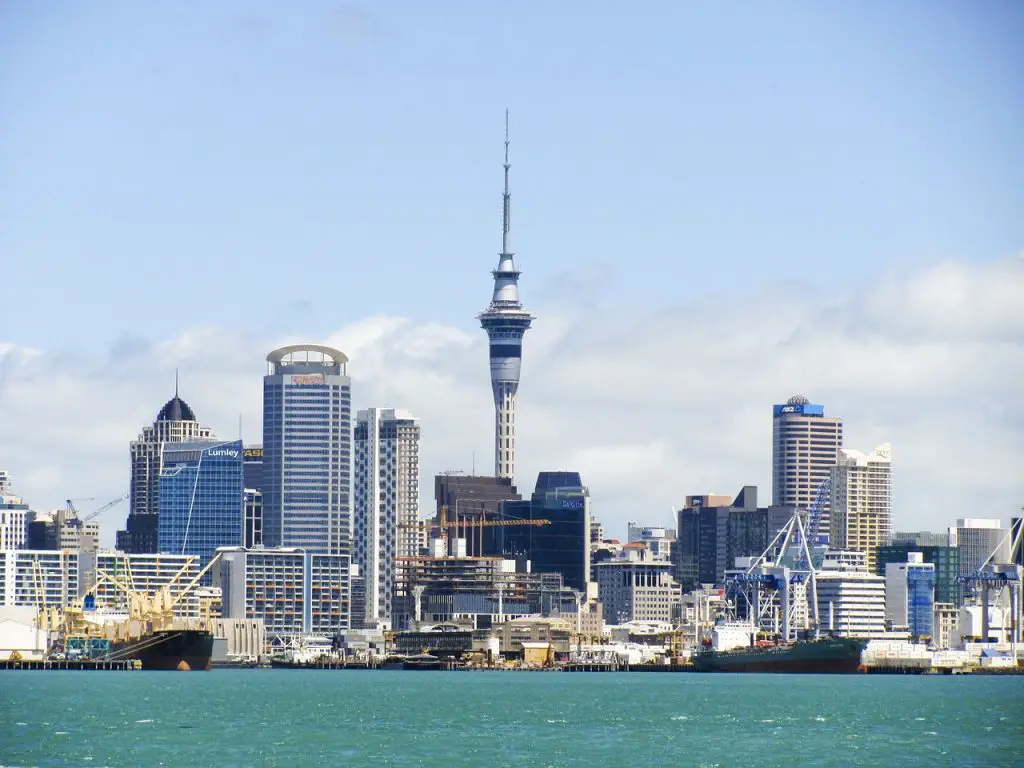New Zealand, a land of stunning landscapes, friendly locals, and an exceptional quality of life, has become an increasingly popular destination for digital nomads looking for a unique and inspiring place to call home. This comprehensive guide provides an overview of the essentials that digital nomads need to know when considering New Zealand as their next destination. From the cost of living to the best coworking spaces, we cover everything to help you make the most of your time in this beautiful country.
Visa Requirements:
When considering any country as a potential destination for working remotely, it’s essential to understand the visa requirements. As a digital nomad, you’ll likely need to apply for a visitor visa to enter New Zealand. This visa allows you to stay in the country for up to nine months within an 18-month period. You cannot work on a visitor visa, but working remotely for an overseas employer or client is generally acceptable.
If you’re looking to stay longer or work for a local employer, you’ll need to explore other visa options, such as the Skilled Migrant Category Resident Visa or the Essential Skills Work Visa. For a comprehensive list of visa options and requirements, visit the New Zealand Immigration website.
Cost of Living:
New Zealand is not the cheapest destination for digital nomads, but the cost of living varies significantly between regions. The cost of living in major cities like Auckland and Wellington is higher compared to smaller towns and rural areas. On average, you can expect to spend NZD 2,500-4,000 per month on accommodation, food, transportation, and entertainment.
Housing:
One of the main expenses for digital nomads is accommodation. In New Zealand, you’ll find a variety of options to suit different budgets and preferences. Options include renting an apartment or house, staying in hostels, booking a private room through Airbnb, or joining a coliving community.
Long-term rentals usually require a minimum lease of six months, but some landlords may be open to negotiating shorter terms. Be prepared to pay a bond (usually equivalent to 4 weeks’ rent) and an additional two weeks’ rent in advance.
Internet and Connectivity:
New Zealand has reliable internet infrastructure, with most cities and towns offering high-speed broadband connections. The average internet speed in New Zealand is around 100 Mbps, which is more than adequate for digital nomads to work efficiently. Most accommodations, cafes, and coworking spaces offer Wi-Fi, but it’s always good to have a local SIM card for data backup.
Coworking Spaces:
New Zealand offers an array of coworking spaces to suit different preferences and budgets. Some popular coworking spaces include:
A. BizDojo (Auckland, Wellington, and Christchurch): BizDojo offers a vibrant coworking community with various spaces, including dedicated desks, private offices, and meeting rooms. Membership plans are flexible, ranging from daily passes to monthly memberships.
B. The Workshop (Auckland): This modern coworking space offers private offices, dedicated desks, and hot-desking options in a creative and collaborative environment.
C. Credenza (Wellington): Credenza is a cozy, boutique coworking space with a focus on sustainability and work-life balance. They offer hot desks, meeting rooms, and a friendly atmosphere.
Local Culture and Language:
New Zealanders, or Kiwis, are known for their friendliness and laid-back attitude. English is the primary language spoken in New Zealand, but the Maori language is also an official language, and you’ll find many Maori words and phrases in everyday use.
It’s essential to respect local customs and the environment. The Maori concept of kaitiakitanga, or guardianship, is deeply ingrained in the culture, emphasizing the importance of protecting and preserving the natural environment for future generations. As a digital nomad, it’s crucial to familiarize yourself with local customs and practices to build relationships with locals and demonstrate respect for the environment.
Networking and Socializing:
New Zealand offers numerous opportunities for digital nomads to network and socialize. Meetup.com is an excellent resource for finding local events and groups tailored to your interests. Additionally, coworking spaces often host events, workshops, and networking sessions that can help you connect with like-minded individuals and other digital nomads.
Expats and digital nomads often form groups on social media platforms, such as Facebook, where you can ask questions, share experiences, and make friends. Don’t be afraid to reach out to locals, as they are generally warm and welcoming.
Transportation:
New Zealand has an efficient public transportation system, including buses, trains, and ferries. In larger cities, you can easily get around using public transit, but if you’re planning to explore the country’s stunning landscapes, renting a car or campervan may be a better option. Keep in mind that New Zealand drives on the left side of the road, and you’ll need a valid driver’s license to rent a vehicle.
Healthcare:
New Zealand has a high-quality public healthcare system, and you can access emergency care for free as a visitor. However, it’s essential to have comprehensive travel insurance to cover any non-emergency medical expenses, as these are not provided for free to non-residents. Many digital nomads also opt for international health insurance to ensure they’re covered wherever they go.
Safety:
New Zealand is generally considered a safe destination, with low crime rates and a welcoming atmosphere. However, it’s essential to exercise common sense and take standard safety precautions, such as locking your belongings and avoiding walking alone at night in unfamiliar areas.
Climate:
New Zealand’s climate varies across the country, with mild temperatures, moderate rainfall, and plenty of sunshine. The North Island tends to be warmer and more humid than the South Island. Keep in mind that New Zealand’s seasons are the opposite of those in the Northern Hemisphere, with summer from December to February and winter from June to August.
Top Destinations for Digital Nomads:
A. Auckland: As New Zealand’s largest city, Auckland offers a diverse range of activities, dining options, and coworking spaces, making it an attractive base for digital nomads.
B. Wellington: Known for its artsy vibe, Wellington has a thriving creative scene and is home to several coworking spaces and cultural events.
C. Christchurch: Rebuilt after a series of earthquakes, Christchurch is a city of innovation and resilience, with plenty of coworking spaces and a strong digital nomad community.
D. Queenstown: For those who love adventure and the outdoors, Queenstown offers a stunning landscape and a range of activities, including skiing, snowboarding, bungee jumping, and hiking.
E. Dunedin: This charming city on the South Island offers a slower pace, beautiful architecture, and a thriving arts scene, making it an ideal destination for creative digital nomads.
Conclusion:
New Zealand offers digital nomads a unique and inspiring environment, combining breathtaking landscapes with a high quality of life. By understanding the essentials outlined in this comprehensive guide, you can make the most of your time in this incredible country and embrace the digital nomad lifestyle in a way that respects local customs and the environment.







